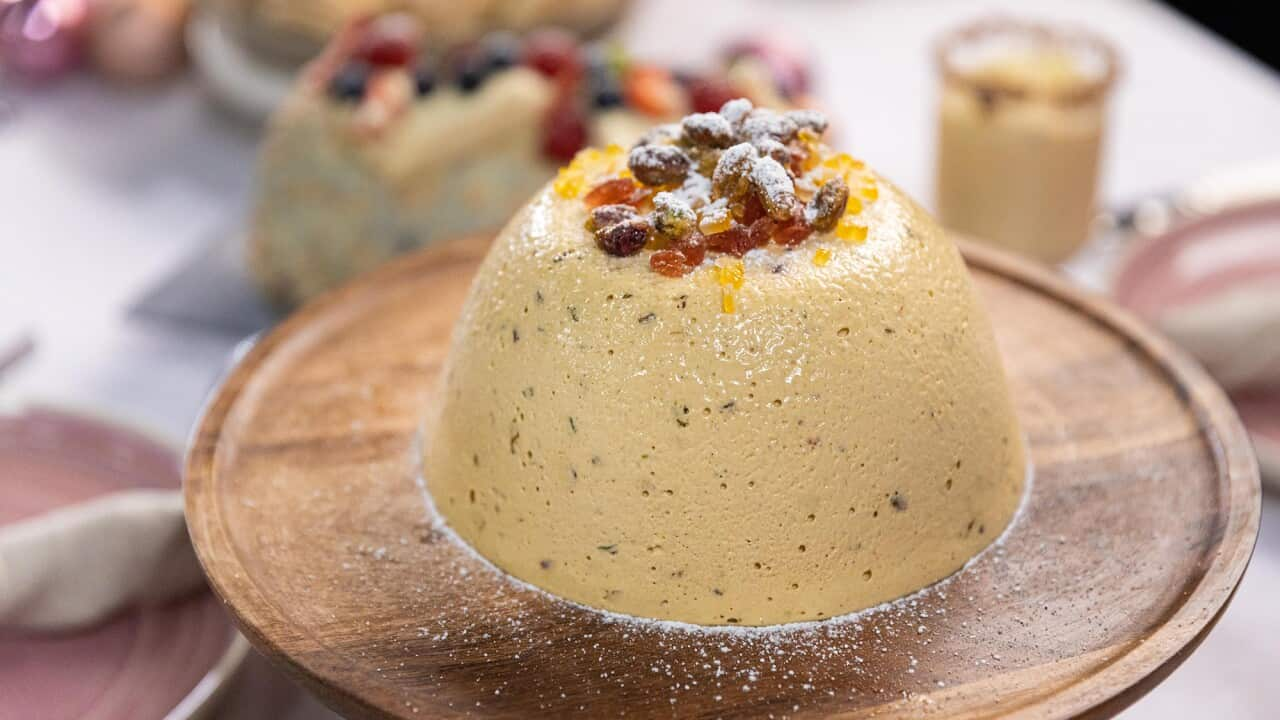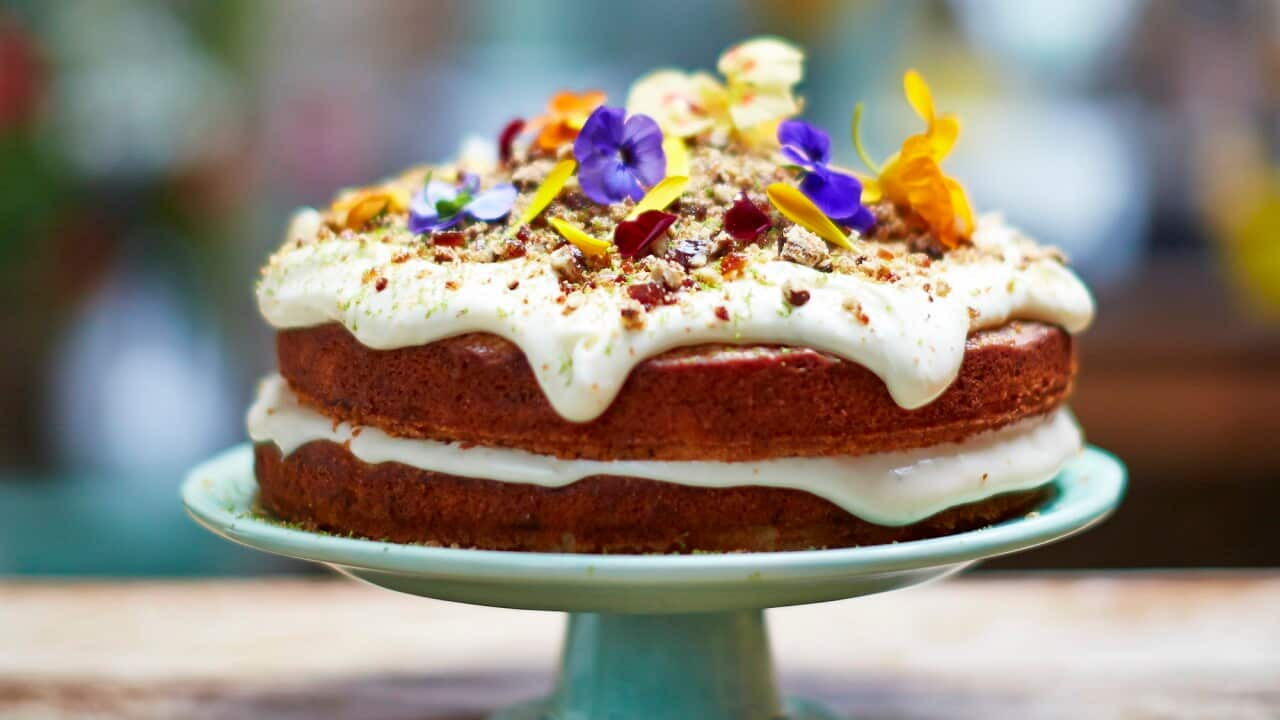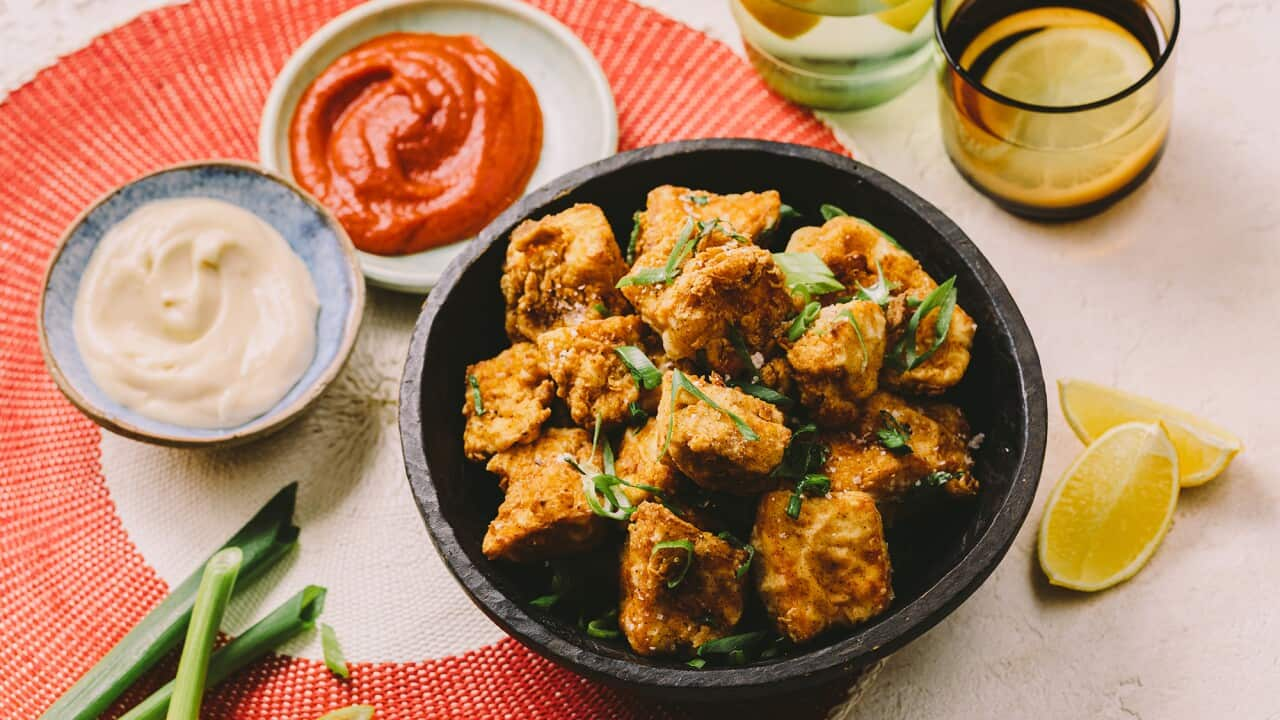serves
4-6
prep
10 minutes
cook
1 hour
difficulty
Easy
serves
4-6
people
preparation
10
minutes
cooking
1
hour
difficulty
Easy
level
Ingredients
- 1.4 kg russet (baking) potatoes, scrubbed and cut into 3-5 cm cubes
- Kosher salt
- ¼ cup duck fat, bacon fat, or olive oil (see Note)
- freshly ground black pepper
- chopped fresh herbs, such as thyme, rosemary, parsley or chives
Instructions
Adjust the oven racks to the upper- and lower-middle positions and preheat the oven to 450ºF (230ºC). Place the potatoes in a large saucepan and cover with cold water by 2.5 cm. Season generously with salt. Bring to the boil over high heat, reduce to a simmer and cook until the potatoes are just barely cooked through, about 10 minutes (a knife or cake tester inserted into a potato should meet little resistance). Drain and transfer into a large bowl.
Add the fat and a few generous grinds of pepper to the hot potatoes and toss well; the potatoes should end up with a thin coating of potato-fat paste. Spray two rimmed baking sheets with non-stick cooking spray (or coat with a thin layer of oil). Transfer the potatoes to the baking sheets and roast until the bottoms are crisp, rotating the pans halfway through cooking, about 25 minutes. Test the potatoes by trying to pry one or two pieces off the baking sheet with a stiff metal spatula (see Note). If they don’t come off easily, roast for additional 3-minute increments until they do.
Flip the potatoes with the spatula, making sure to get all the crisped bits off the bottom, then continue to roast until golden brown and crisp all over, about 25 more minutes. Transfer to a serving bowl, season to taste, and toss with chopped herbs.
Notes
• Simply toss a potato coated with a bit of oil in the oven, and what you end up with is a potato with a paper-thin sheath of crispness around its exterior that very rapidly softens and turns leathery as internal moisture seeps through it. So, what makes a potato crisp? The answer is building up a dehydrated layer of gelatinized starch on the exterior of the spud, much like when you fry a French fry. To do this, you’ve got to parcook them, allowing their starches to soften and expand, and then recrystallise by cooling them a bit.
Our secondary goal is to increase their surface area. Craggy, uneven surfaces crisp up a lot better than smooth ones. Luckily, we can kill two birds with one stone here. By boiling your potatoes before you roast them, not only do you ensure that their outer layers of starch are properly gelatinised, you also soften their exteriors enough that they get a bit battered and bruised when you toss them around with oil before roasting them. This creates a sort of potato-oil paste that adds plenty of surface area and acts almost like a batter for fried foods, creating an extra layer of crispness as the potatoes roast.
• What’s the best fat to use? People often tout the awesomeness of duck fat with potatoes, and for good reason: it tastes awesome. Duck fat has a distinct richness and aroma that gets absorbed very easily into the surface of a spud. On top of that, it’s got plenty of saturated fat and a high smoke point, which makes it an ideal medium for crisping up fried or roasted foods. (In general, the higher the saturated fat content of an oil, the more efficiently it’ll crisp foods.) Can’t get duck fat? Well, turkey fat or chicken fat collected from roasted birds will do just fine.
Bacon fat and rendered lard are also fine choices, as is just about any sort of animal-derived fat. If you must, extra-virgin olive oil will certainly do admirably well, though you won’t get quite the same level of crispness you’d get with an animal fat.
• I roast mine on an unlined heavy rimmed baking sheet (they have a tendency to stick to foil). The key is to make sure you let the undersides crisp up completely before you even attempt to lift or flip them. If the potatoes don’t come off relatively easily, you run the risk of breaking off the tops, leaving the crisp bottoms cemented to the bottom of the pan. This is not an ideal situation. Moral of the Story: Your potatoes will release themselves from the pan when they’re good and ready. Don’t force them.
Recipe and image from The Food Lab: Better Home Cooking Through Science by J. Kenji López-Alt (Norton, hbk, $69.65).
Cook's Notes
Oven temperatures are for conventional; if using fan-forced (convection), reduce the temperature by 20˚C. | We use Australian tablespoons and cups: 1 teaspoon equals 5 ml; 1 tablespoon equals 20 ml; 1 cup equals 250 ml. | All herbs are fresh (unless specified) and cups are lightly packed. | All vegetables are medium size and peeled, unless specified. | All eggs are 55-60 g, unless specified.









